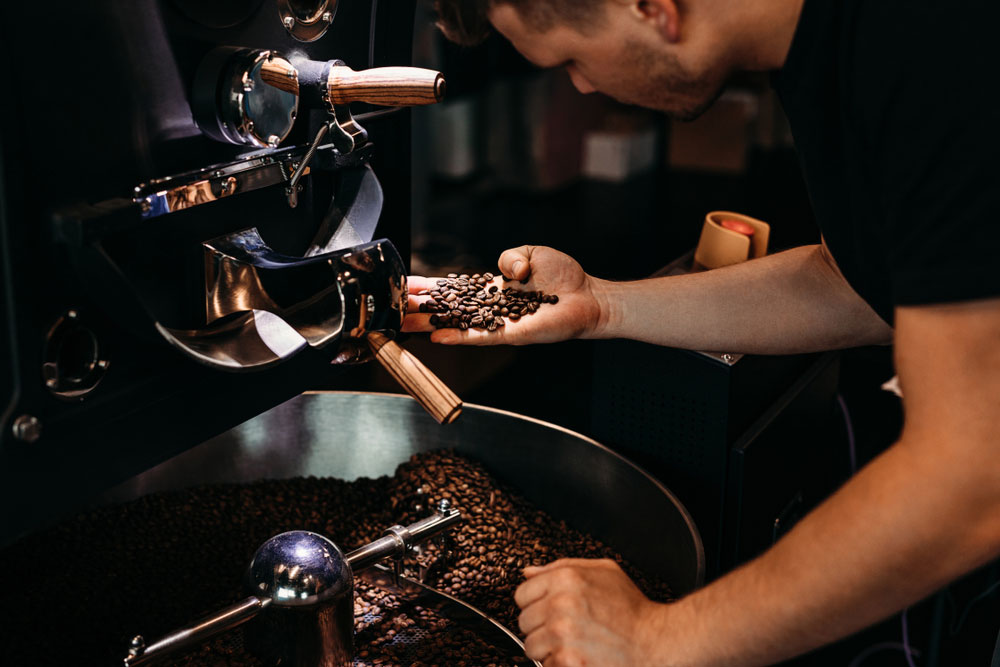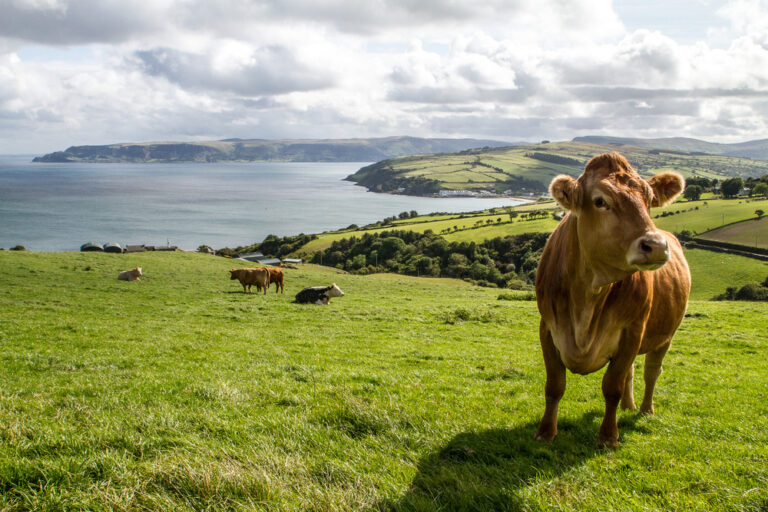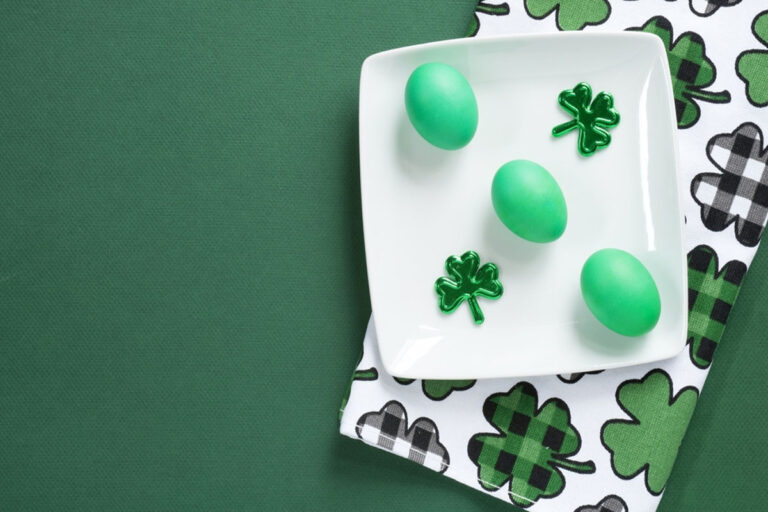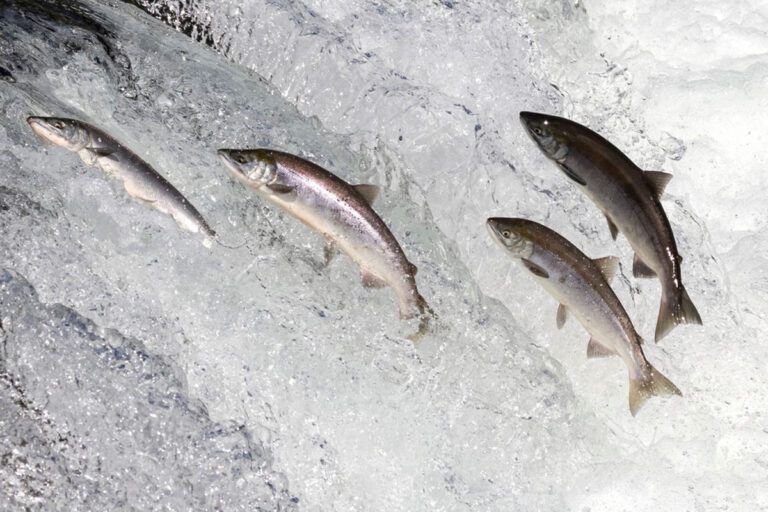The Origins of Coffee in Ireland
Coffee was first introduced to Ireland in the 17th century by merchants and traders who had traveled to the Middle East and brought the beans back with them. Coffee, however, did not become popular in Ireland until the nineteenth century, notably among the aristocratic classes. The drink was seen as a more opulent alternative to tea, which had long been Ireland’s favored beverage.
Coffeehouses began to sprout up in Ireland’s major cities in the early twentieth century, giving a venue for people to mingle and have a cup of coffee. But, coffee’s success in Ireland was eclipsed by tea’s domination, which remained the country’s most popular drink for many years.
Coffee did not regain popularity in Ireland until the 1990s, thanks to the expansion of foreign coffee franchises such as Starbucks and Costa Coffee. This rekindled interest in coffee culture, and Ireland now boasts a booming coffee scene, with small cafés and roasteries scattered around the nation.
In recent years, there has also been a rising emphasis in the Irish coffee business on quality and sustainability, with many coffee shops and roasters purchasing high-quality beans from ethical and fair-trade sources. Irish coffee roasters are also experimenting with new tastes and techniques to create distinctive and delectable beverages, such as cold brew and nitro coffee.
Ultimately, coffee’s history in Ireland has been one of development and change. While it was formerly considered a luxury drink, it is now widely drunk and plays a significant part in Irish culture and social life.
Traditional Irish coffee versus contemporary coffee culture
There are some major characteristics to consider when comparing traditional Irish coffee to current coffee culture in Ireland. Traditional Irish coffee is a warm and pleasant beverage composed with hot coffee, Irish whiskey, sugar, and whipped cream. It is commonly served as a dessert or after-dinner drink, and it is associated with Irish friendliness and kindness.
Modern coffee culture in Ireland, on the other hand, is centered on high-quality coffee, specialized beverages, and a unique café experience. Independent coffee shops and roasteries have grown in popularity in recent years, and they frequently offer a variety of specialty drinks such as pour-over coffee, cold brew, and nitro coffee. These beverages are frequently brewed from single-origin beans collected from all over the world, and they have a rich and subtle flavor profile.
Another significant distinction between traditional Irish coffee and current coffee culture is the method of preparation. Traditional Irish coffee is produced by blending hot coffee, Irish whiskey, and sugar, followed by whipped cream. It’s a simple drink to make, and it’s best enjoyed in a nice and relaxing situation.
Modern coffee shops, on the other hand, frequently feature a more complicated preparation procedure, with baristas utilizing sophisticated equipment and techniques to make the perfect cup of coffee. To achieve a perfectly balanced shot of espresso, use a Chemex or Hario V60 pour-over method or a dedicated espresso machine.
While traditional Irish coffee and current coffee culture are quite different, both provide a distinct and pleasurable experience for coffee enthusiasts in Ireland. Whether you’re searching for a warm and soothing drink that embodies the warmth and friendliness of Ireland, or a complex and rich coffee that represents the finest of modern coffee culture, the Irish coffee industry has lots to offer.
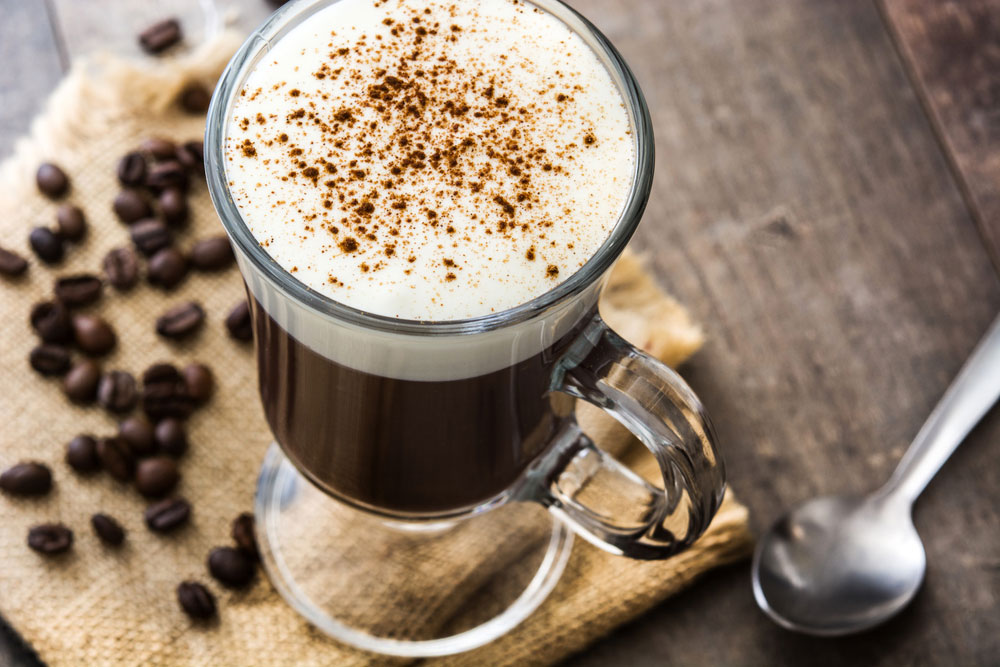
The coffee roasting process
Roasting coffee beans is an important step in producing the rich and nuanced taste profile that coffee is known for. The roasting process entails heating the green coffee beans to a high temperature, which causes a sequence of chemical processes within the beans to occur, eventually culminating in the formation of its distinct flavor and fragrance.
The first stage of the coffee roasting process is drying the green coffee beans at a temperature of roughly 200 degrees Fahrenheit. This eliminates any extra moisture from the beans and gets them ready for the next step in the procedure.
The roasting procedure begins after the beans are dry. The temperature is progressively raised, generating a sequence of chemical reactions in the beans. When the beans heat up, they undergo pyrolysis, a process in which complex organic molecules are broken down into smaller chemicals. This results in a variety of tastes and fragrances, including the typical smokey and nutty characteristics associated with coffee.
As the beans continue to roast, a sequence of chemical changes occur, resulting in the creation of their distinct taste character. The degree of roasting can vary based on the intended flavor profile, with lighter roasts creating a more acidic and fruity taste and deeper roasts producing a fuller body and bittersweet flavor.
Coffee roasters in Ireland are experimenting with different roasting procedures to achieve unique and distinct tastes. Slow-roasting methods are used by certain roasters, allowing the beans to develop a more complex taste profile, but others use other types of equipment, such as drum roasters or fluid bed roasters, to generate specialized flavor profiles.
Irish coffee roasters are also experimenting with other sorts of beans, acquiring high-quality beans from all around the world to produce one-of-a-kind blends that represent their personal flavor preferences. Several roasters are also focused on ethical and sustainable sourcing techniques, collaborating directly with farmers to guarantee that their beans are cultivated and harvested in an ecologically and socially responsible manner.
Overall, the coffee roasting process is a difficult and intriguing component of the coffee-making process, and Irish coffee roasters use their expertise and creativity to produce unique and tasty blends that represent their personal style and tastes.
Coffee’s Influence on Irish Culture
Coffee is firmly embedded in Irish culture, particularly in metropolitan areas where it is a common social drink. Coffee shops have become popular places for friends to congregate and catch up over a cup of coffee, and business meetings are frequently held in these intimate surroundings. Additionally, in Irish social life, coffee has evolved as a healthy alternative to alcohol, catering to those who prefer to mingle in a more sober and health-conscious manner.
The popularity of coffee has aided the diversity of Irish cuisine in recent years. Coffee shops now provide a wide variety of international coffees, such as cappuccinos, lattes, and flat whites, which have become popular in Irish cuisine. Furthermore, the expansion of the coffee business in Ireland has had a substantial economic impact, producing jobs in coffee shops and roasteries as well as stimulating the development of companies such as coffee cup makers, coffee equipment providers, and coffee bean importers.
The expansion of the coffee business has also facilitated cultural interchange. Irish coffee cafes and roasteries increasingly work with foreign coffee firms, and Irish baristas compete in international coffee contests and events. This interchange has served to connect Ireland to the larger world of coffee, sparking new coffee trends and inventions.
Coffee has become an important part of Irish culture, impacting society, gastronomy, and the economy. It has encouraged cultural interchange and aided to the growth of different coffee-related companies. Coffee is expected to remain a staple drink in Irish society as the coffee business evolves, impacting the country’s food and drink culture for years to come.
The sustainability of Irish coffee
As the subject of sustainability becomes more prominent across the world, Irish coffee shops and roasters are taking measures to lessen their environmental effect and encourage more ethical and sustainable methods in the coffee sector. Here are some of the environmental initiatives being made by Irish coffee shops and roasters:
- Eco-Friendly Packaging: Many Irish coffee shops and roasters are now using eco-friendly packaging materials, such as compostable cups, lids, and straws. Some are also encouraging customers to bring their own reusable cups, offering discounts as an incentive.
- Ethical Sourcing: Irish coffee roasters source beans from ethical and fair trade suppliers, collaborating directly with farmers to guarantee they are compensated fairly for their coffee. This promotes sustainable growing techniques and helps coffee producers and their families make a living.
- Sustainable Production: Irish coffee roasters are experimenting with energy-efficient roasting technology and alternative energy sources like solar power. Some are also taking steps to reduce waste, such as composting coffee grounds and recycling coffee containers.
- Community Involvement: Irish coffee shops and roasters are involved in community initiatives that promote sustainability, such as beach clean-ups and tree-planting projects. Some are also partnering with local charities and non-profit organizations to support environmental and social causes.
Education: Irish coffee shops and roasters educate consumers about the significance of sustainability in the coffee business, including information about the environmental effect of coffee production and consumption, as well as advice for decreasing waste and supporting sustainable practices.
Generally, Irish coffee shops and roasters are making tremendous efforts to promote more ethical and sustainable methods in the coffee sector. They are helping to build a more sustainable and ethical coffee business by utilizing eco-friendly packaging, procuring beans from ethical and fair trade sources, encouraging sustainable production, supporting community projects, and educating customers.
Coffee’s Place in Irish Cuisine
Coffee has become a fundamental drink in Irish culture, as well as a component of the country’s cuisine. Coffee is a prominent element in a variety of sweets and savory meals served in Irish coffee shops and restaurants, including coffee cake, tiramisu, and coffee-flavored stews.
In Ireland, coffee cake is a popular treat prepared from coffee-flavored sponge cake that is sometimes layered with buttercream and topped with coffee icing or frosting. Tiramisu, a classic Italian dessert composed with layers of coffee-flavored sponge cake, mascarpone cheese, and whipped cream, has also grown popular in Ireland. Moreover, Irish coffee is a traditional drink that originated in Ireland in the 1940s and is created with hot coffee, Irish whiskey, sugar, and whipped cream.
Coffee is also used as a flavor in savory meals such as stews, where it provides depth and richness, particularly when coupled with other strong tastes such as beef or lamb. Coffee and chocolate are frequently combined in Irish pastries, with mocha and espresso tastes popular in chocolate truffles and other chocolate-based delights.
Coffee, as a rich and versatile ingredient, has become an essential component of Irish cuisine, and it is expected to continue to play an important part in the future. Its unique scent and flavor have made it a popular ingredient in both sweet and savory meals, and coffee shops and restaurants are always experimenting with new and imaginative ways to include it into their menu items.
Coffee’s Future in Ireland
The future of coffee in Ireland looks promising, as there are several trends and innovations expected to evolve in the coming years. One of the most significant developments is the growth of the specialty coffee market, which is being driven by the emergence of artisanal coffee shops and roasteries. These establishments offer high-quality coffee that is often sourced directly from small-scale farmers and roasted in small batches to preserve freshness and flavor.
Another emerging trend in the coffee business is sustainability, with more coffee shops and roasteries investing in eco-friendly packaging and obtaining beans from ethical and fair-trade vendors. Several coffee roasters are also incorporating sustainability practices into their operations, such as the use of renewable energy sources and waste reduction.
Irish coffee roasters are also experimenting with novel tastes, such as innovative mixes and flavor profiles that stretch the boundaries of regular coffee. These distinct flavors are frequently obtained by novel roasting processes or by integrating different components into the coffee, such as spices or fruits.
Pour-over coffee and cold-brew coffee are two new brewing technologies that are likely to gain popularity in Ireland. These methods provide distinct flavor profiles and brewing experiences, making them appealing to a broader spectrum of coffee lovers.
With increasingly automated brewing systems and mobile ordering applications, as well as sophisticated coffee machines that can generate complicated concoctions with the push of a button, technology is set to play a growing role in the coffee business. These innovations will make coffee more accessible and convenient for customers, while also helping coffee shops and roasteries to simplify their processes.
Irish cafes and roasteries will continue to shape the future of coffee culture in Ireland as the coffee business evolves. The future of coffee in Ireland is bright, with a focus on sustainability, innovation, and high-quality coffee.
Related Recipes:
Traditional Irish Coffee
Irish Coffee Cake
